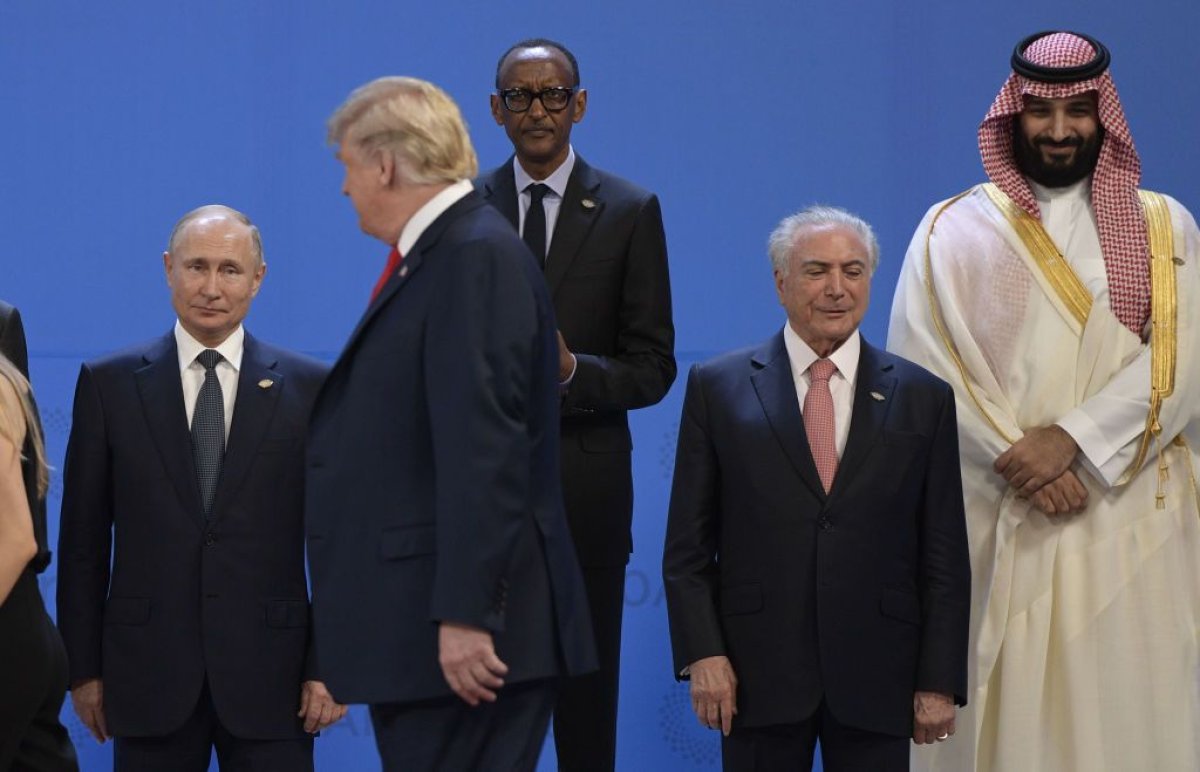New York Times columnist Paul Krugman slammed Washington's decision to ally itself with Russia and Saudi Arabia in refusing to welcome the findings of a major international report that warned of the life-threatening impact of climate change.
On Monday, the Nobel Prize–winning economist posted a tweet to strongly criticize the move by the administration of President Donald Trump, which came despite a recent federal government report emphasizing the risk of climate change to the U.S. economy.
"There's a new axis of evil: Russia, Saudi Arabia—and the United States," Krugman wrote, retweeting a post that included a link to a Washington Post on the Trump administration's decision.
There's a new axis of evil: Russia, Saudi Arabia -- and the United States https://t.co/rcJup3b1m0
— Paul Krugman (@paulkrugman) December 10, 2018
Former President George W. Bush is credited with popularizing the term "axis of evil" to refer to Iraq, Iran and North Korea in 2002 as he pushed the country to expand the global "war on terror." The U.S. accused the three nations of harboring terrorists or pushing for nuclear proliferation.
Washington's alliance with Russia and Saudi Arabia came during a global summit on climate change held in Poland over the weekend. The three nations, along with Kuwait, all objected to the wording of the report by the United Nations Intergovernmental Panel on Climate Change, which warned that the world had only until 2030 before global warming reached a level that would lead to mass food shortages—unless major changes were made.
"The United States was willing to note the report and express appreciation to the scientists who developed it, but not to welcome it, as that would denote endorsement of the report," a State Department spokesperson told The Washington Post. "As we have made clear in the [Intergovernmental Panel on Climate Change] and other bodies, the United States has not endorsed the findings of the report."
Trump has been a staunch critic of well-established climate science, which has consistently warned of the impending danger of ignoring global warming. In late November, the president told reporters that he did not "believe" the findings laid out in a report by his own administration. The document warned that climate change could cost the U.S. economy hundreds of billions of dollars by the end of the century and shrink the GDP by about 10 percent.

The president also officially announced in June of last year that the U.S. would withdraw from the 2015 Paris Climate Accord, which was signed by his predecessor, Barack Obama. Although the U.S. would technically remain a member of the treaty until November 2020, Trump's decision has isolated the U.S. from the rest of the world, with war-torn Syria becoming the last nation to sign onto the deal in November 2017.
Krugman's classification of the U.S. alliance with Saudi Arabia and Russia came as the Trump administration faces increasing criticism for its continued support of Riyadh and the president's alleged ties to Moscow. Republican and Democratic lawmakers have pushed to take a firm stance against Saudi leaders in the wake of the murder of journalist Jamal Khashoggi in early October. GOP Senator Bob Corker from Tennessee even suggested last week that Trump's continued praise and support of the kingdom's Crown Prince Mohammed bin Salman was "un-American."
Trump's 2016 presidential campaign also remained under investigation by special counsel Robert Mueller for alleged conspiring with Russia. The president was attempting to build a tower in Moscow before his election, and there has been significant speculation that the Russian government may have used these business ties as leverage over Trump. Thus far, the investigation has led to the indictment of 33 people and three companies.
Uncommon Knowledge
Newsweek is committed to challenging conventional wisdom and finding connections in the search for common ground.
Newsweek is committed to challenging conventional wisdom and finding connections in the search for common ground.
About the writer
Jason Lemon is a Weekend Editor at Newsweek based in Brooklyn, New York. Prior to taking on the editor role, Jason's reporting focused on ... Read more
To read how Newsweek uses AI as a newsroom tool, Click here.








